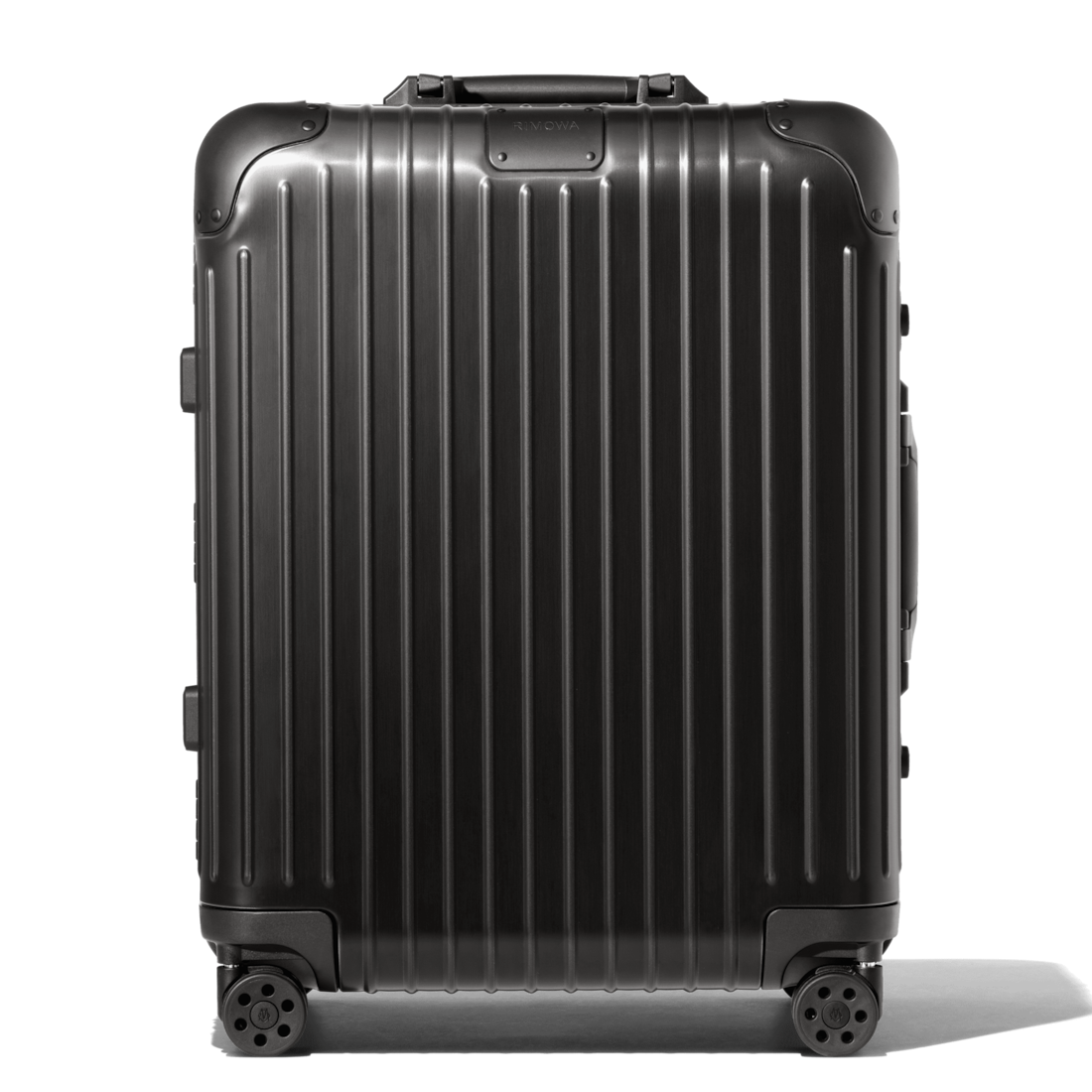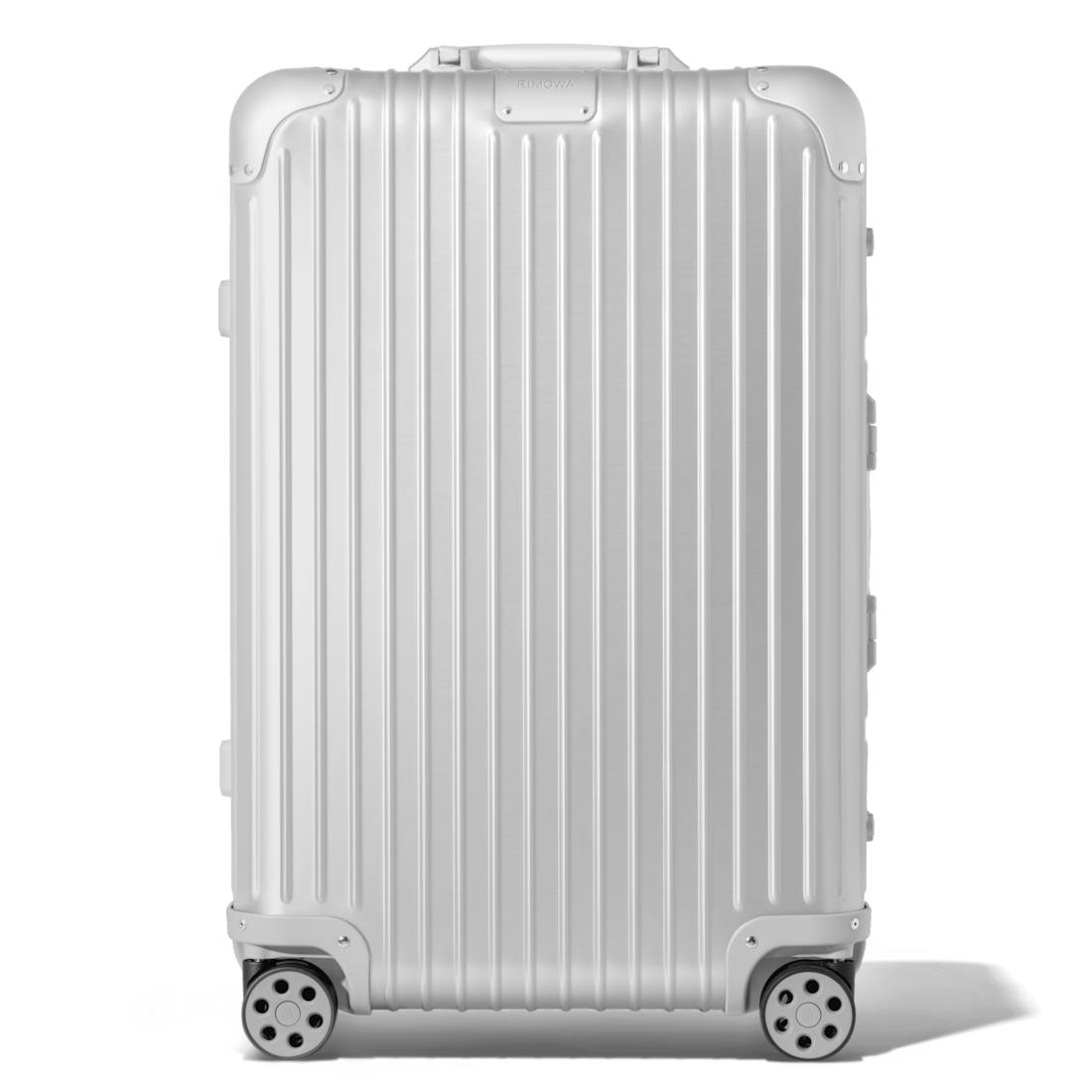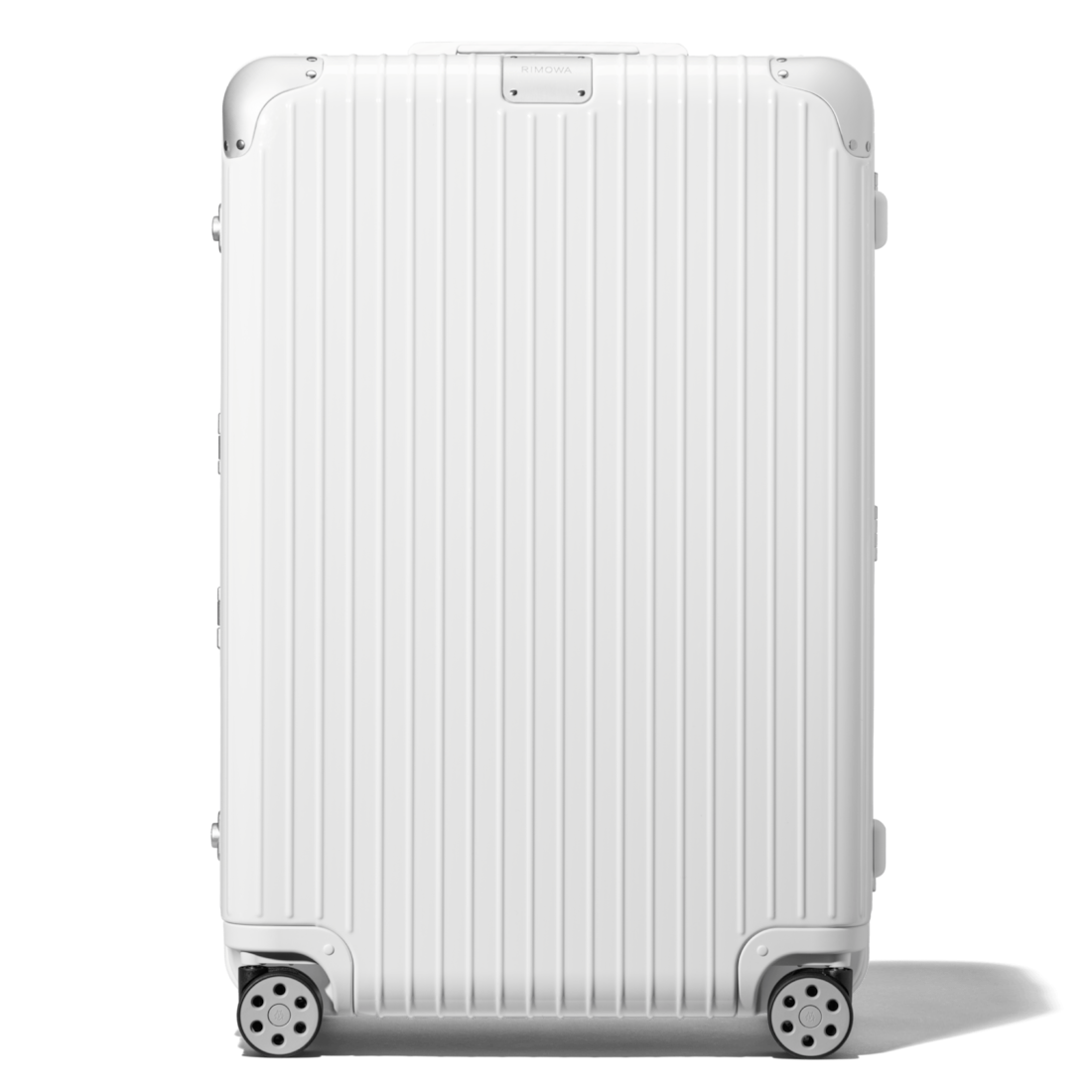Original Pilot Case | Small Carry-On Suitcase | Silver | RIMOWA
The ideal solution for travelling professionals, the new Original Pilot in silver updates a signature design.
Key Elements
TSA-Approved Locks
Each of our suitcases features TSA-approved locks that can be opened by security during airline baggage checks without causing any damage.
Organizational pockets
Two zipped pockets on the top lid are ideal for small belongings such as electronics. A vertical pocket in the main compartment can hold additional travel essentials, like a 1/2L bottle or a compact umbrella.
Flexible Interior
The padded compartment can either hold a laptop up to 16 inches or it can be removed in order to transform the business case into a versatile toolbox.
Multiwheel® System
Pioneered by RIMOWA, this high-end system guarantees stable and effortless steering thanks to ball-bearing mounted wheels with cushioned axels.
Telescopic Handle
Engineered to offer seamless stage-free adjustment for maximum comfort and smooth manoeuvrability.
Matrials
- Outside : Anodised Aluminum
- Inside : Polyester
- Handles : Hard wearing plastic
- Wheels : Hard wearing plastic
- Divider : Polyester
Additional information
| Width | 50 cm |
|---|---|
| Depth | 23 cm |
| Measurement | 42 x 50 x 23 cm |
| Weight | 4.9 KG |
| Volume | 31 L |









Reviews
There are no reviews yet.